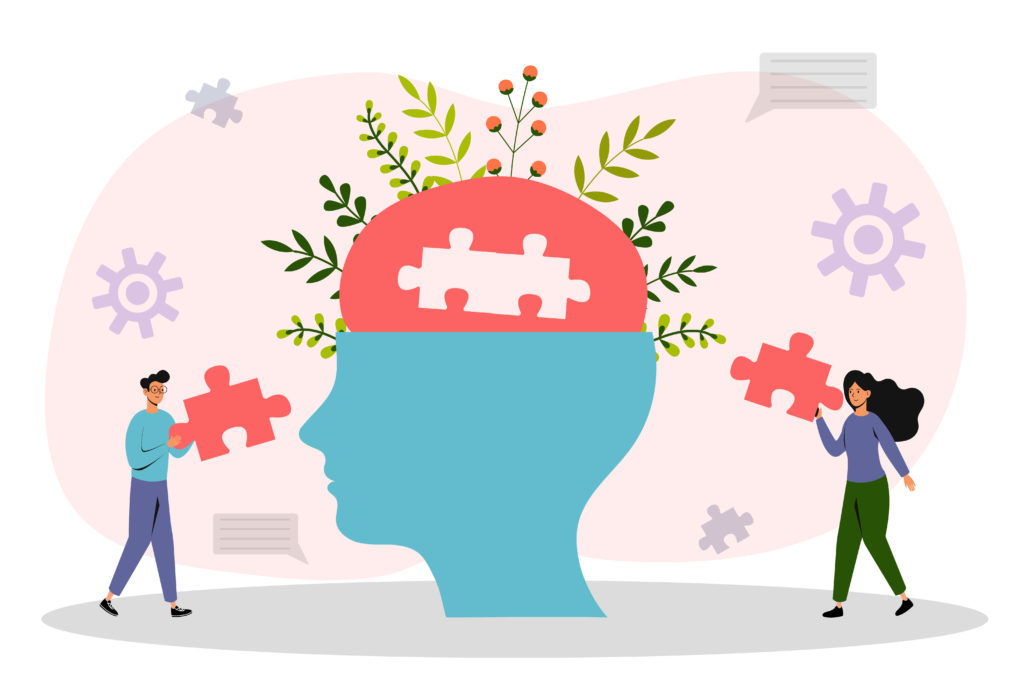Metacognition is at the heart of our project and our blog, highlighting its impact on students and lifelong learning. But where does this concept come from, and how has it become a key component of modern teaching?

The Origins of Metacognition
The origins of metacognition remain complex to pinpoint—some researchers trace it back to Greek philosophers like Plato1—but interest in the concept has grown significantly since the 20th century. While John Flavell is often credited with formally introducing metacognition in the 1970s, its foundations can be traced back to early 20th-century works. The French pedagog, Alfred Binet, (1905) explored “mental orthopedics” that aimed to strengthen thinking skills in response to rigid schooling policies. Later, in 1961, the US Education Policies Commission called for curricula that develop students’ ability to think critically, reflecting a growing interest in cognitive processes.
Research continued to evolve and by the late 20th century, metacognition was structured around three main approaches:
- Teaching general thinking skills
- Teaching subject-specific thinking skills
- Integrating thinking skills across the curriculum
This shift emphasised the need to reform education policies and prioritise metacognition in research and practice.
Metacognition in the 21st Century
The 21st century has introduced multiple challenges requiring adaptable learning methods. The rapid evolution of knowledge, driven by ICT (information and communication technology) and digital learning, has transformed the way we teach. The “21st-century skills” framework now focuses on competencies such as critical thinking, creativity, and self-regulation.
These needs were further accelerated by the COVID-19 pandemic, which underlined the urgency of changes in education, particularly the need for self-directed learning. The sudden shift to remote education exposed inequalities in digital access and teaching, reinforcing the importance of metacognitive skills for independent and self-regulated learning.
Metacognition and European Education Policies
The European Union has acknowledged the importance of metacognitive skills in education. In 2000, the Lisbon Strategy introduced key competences, including “learning to learn,” as essential for helping students thrive in both school and life. More recently, the Council Recommendation of 22 May 20182 reinforced the idea that lifelong learning is crucial to preparing students for a rapidly evolving world.
Challenges and Opportunities in European Schools
While European countries are working towards common education goals, major differences in how schools operate remain (class sizes, number of compulsory school years, teaching methods…). In addition, students’ performance is also often linked to their socio-economic background3, making it clear that education systems need to be more inclusive.
At the same time, studies like TALIS (2018) revealed that skills such as self-assessment and independent learning are not widely taught in many European classrooms, when their benefits in students’ performances have already been proven. Encouraging these approaches in schools could help all students become more confident, reflective learners.
The Future of Metacognition in Europe
While a unified European approach to metacognition is still lacking, interest in its implementation is growing. European initiatives, such as the CogniQuest project, equip teachers and students with practical resources for fostering self-regulated learning across different educational contexts.
To fully harness the potential of metacognition, continued collaboration amongst educators, policymakers, and researchers is essential. Strengthening metacognitive practices across European schools can empower students to become autonomous learners—better equipped for the challenges of the 21st century.
To go further
Council Recommendation on Key Competences for Lifelong Learning. European Education Area. https://education.ec.europa.eu/focus-topics/improving-quality/key-competences.
DEPP. (2023). Education in Europe: Key figures 2022, 4th edition. https://www.education.gouv.fr/education-europe-key-figures-2022-378422.
European Commission. (2019). Directorate-General for Education, Youth, Sport and Culture/ Key competences for lifelong learning. Publications Office, https://data.europa.eu/doi/10.2766/569540.
Georghiades, P., (2004). From the general to the situated: three decades of metacognition. International Journal of Science Education, 26(3), 365-383. DOI: 10.1080/0950069032000119401.
OECD. (2023). PISA 2022 Results (Volume I): The State of Learning and Equity in Education, PISA, OECD Publishing, Paris, https://doi.org/10.1787/53f23881-en.
Schleicher, A. (2023). PISA 2022: Insights and Interpretations. OECD.
Vincent-Lancrin, S., Cobo Romaní, C. and Reimers, F. (eds.) (2022). How Learning Continued during the COVID-19 Pandemic: Global Lessons from Initiatives to Support Learners and Teachers. OECD Publishing, Paris, https://doi.org/10.1787/bbeca162-en.
- Georghiades, P., (2004). From the general to the situated: three decades of metacognition. International Journal of Science Education, 26(3), 365-383. DOI: 10.1080/095006903200011940. ↩︎
- Council Recommendation on Key Competences for Lifelong Learning. European Education Area. https://education.ec.europa.eu/focus-topics/improving-quality/key-competences. ↩︎
- OECD. (2023). PISA 2022 Results (Volume I): The State of Learning and Equity in Education, PISA, OECD Publishing, Paris, https://doi.org/10.1787/53f23881-en. ↩︎
